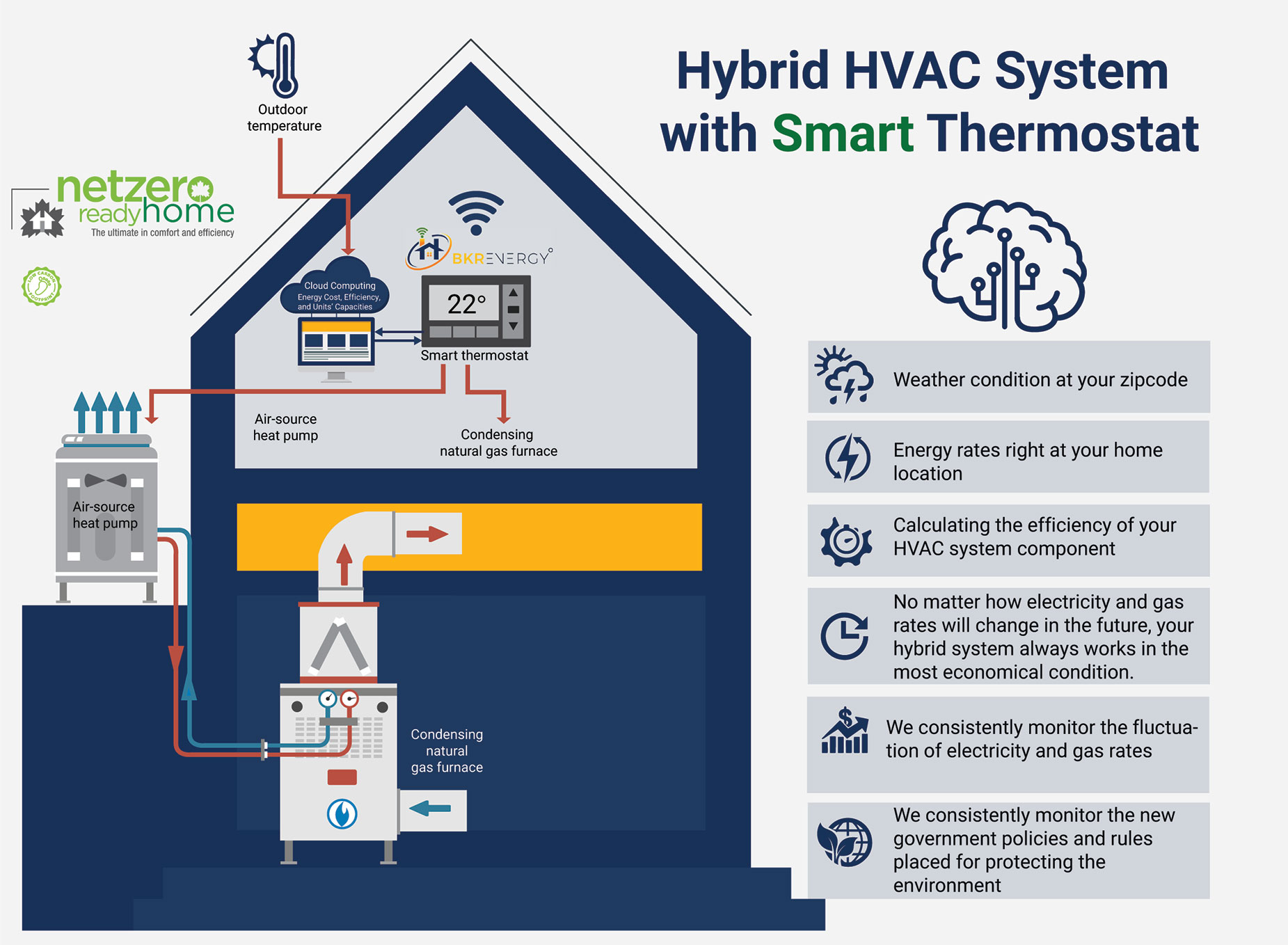
Revolutionizing Comfort: The Era of Smart HVAC Systems
In the realm of home climate control, Smart HVAC Systems are paving the way for energy efficiency, convenience, and enhanced comfort. Let’s explore how these intelligent systems are transforming the traditional heating, ventilation, and air conditioning landscape.
Efficiency at Its Core
Smart HVAC Systems are designed with efficiency as a core principle. These systems utilize advanced sensors and algorithms to optimize energy usage based on real-time conditions. From adjusting temperature settings when occupants are away to learning user preferences over time, these intelligent systems contribute significantly to reducing energy consumption and, consequently, utility bills.
Remote Accessibility and Control
A standout feature of Smart HVAC Systems is their remote accessibility and control. Through dedicated mobile apps or smart home platforms, users can monitor and adjust their home’s climate settings from anywhere with an internet connection. This level of control not only enhances convenience but also allows for efficient management, ensuring the home is always at the desired temperature upon arrival.
Intelligent Climate Forecasting
Predicting and adapting to weather changes is a forte of Smart HVAC Systems. By accessing local weather forecasts, these systems proactively adjust settings to maintain optimal indoor conditions. This not only increases comfort but also prevents unnecessary energy consumption, aligning the home’s climate with external conditions for maximum efficiency.
Customized Zoning for Individual Comfort
Smart HVAC Systems introduce the concept of zoning, allowing users to customize temperature settings for different areas or “zones” of the home. This is particularly advantageous in larger homes or multi-story residences, where varying preferences and usage patterns can be accommodated simultaneously. Zoning contributes to both energy savings and personalized comfort.
Air Quality Management
Beyond temperature control, Smart HVAC Systems address indoor air quality. Equipped with sensors that detect pollutants and allergens, these systems can automatically adjust ventilation and filtration settings to ensure a healthier living environment. This holistic approach to indoor air quality management is a notable advancement in the HVAC industry.
Smart HVAC Systems: A Link to Modern Living
For those eager to embrace the benefits of Smart HVAC Systems, Smart HVAC Systems offers comprehensive insights and recommendations. Discover the latest technologies, features, and success stories shared by a community dedicated to modernizing home climate control.
Cost Savings and Environmental Impact
While the initial investment in Smart HVAC Systems may seem significant, the long-term benefits outweigh the costs. The efficiency gains and reduced energy consumption lead to substantial savings on utility bills over time. Moreover, the environmental impact is reduced as these systems contribute to overall energy conservation, aligning with sustainable living practices.
Integration with Smart Home Ecosystems
Smart HVAC Systems are integral components of the broader smart home ecosystem. They seamlessly integrate with other smart devices, such as smart thermostats, lighting systems, and voice-activated assistants. This interconnectedness not only enhances user experience but also allows for synchronized and automated control of various aspects of home living.
Future Innovations and Continuous Improvement
As technology continues to advance, the future of Smart HVAC Systems looks promising. Anticipate further innovations, such as enhanced artificial intelligence capabilities, deeper integration with renewable energy sources, and more intuitive user interfaces. The continuous improvement of these systems ensures that homes remain at the forefront of intelligent and efficient climate control.
Conclusion: Elevating Home Comfort with Intelligence
In conclusion, Smart HVAC Systems represent a significant leap forward in home climate control. With a focus on efficiency, remote accessibility, intelligent forecasting, customized zoning, air quality management, and seamless integration, these systems elevate comfort while contributing to energy conservation. Embrace the era of smart living and transform your home into a haven of intelligent and efficient climate control.
